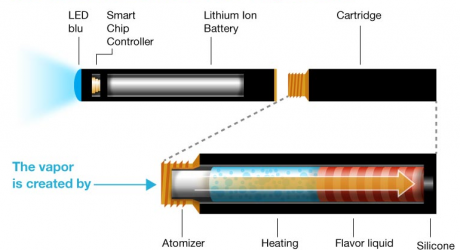E-cigarettes are gaining popularity and are indeed becoming a “fashion statement” but as researchers look to more evidence to assist them in understanding patterns of behaviour as it relates to smoking and smoking cessation programmes, will the e-cigarette undo all the hard work, indeed is it as good as the patch in smoking cessation programmes?
According to findings presented at the European Respiratory Society (ERS) Annual Congress in Barcelona, Spain that were also published online in The Lancet, e-cigarettes are as effective as the patch in smoking cessation programmes. According to the researchers, their research is the first to compare the e-cigarette with the nicotine patch.
“The trial found that e-cigarettes and nicotine patches had comparable rates of success with few adverse events: roughly similar proportions of smokers were still not smoking 3 months after following a 13-week course using either e-cigarettes or nicotine patches,” said reports on the study.
Chris Bullen, lead researcher, professor and director of the National Institute for Health Innovation at the University of Auckland in New Zealand, said, “Our study establishes a critical benchmark for e-cigarette performance compared to nicotine patches and placebo e-cigarettes, but there is still so much that is unknown about the effectiveness and long-term effects of e-cigarettes.”
An e-cigarette is a battery powered device that allows the smoker to inhale the nicotine that is vaporized while not inhaling tar. However, it is the nicotine that is addictive. The nicotine patch is transdermal and releases nicotine into the body through the skin at lesser amounts than cigarettes as part of a smoking cessation programme.
However, the researchers said that it was still too early to say whether the e-cigarette can be used in tobacco control or to “establish their overall benefits and harms at both individual and population levels.”
“Given the increasing popularity of these devices in many countries, and the accompanying regulatory uncertainty and inconsistency, larger, longer-term trials are urgently needed to establish whether these devices might be able to fulfil their potential as effective and popular smoking cessation aids,” Prof. Bullen said.














